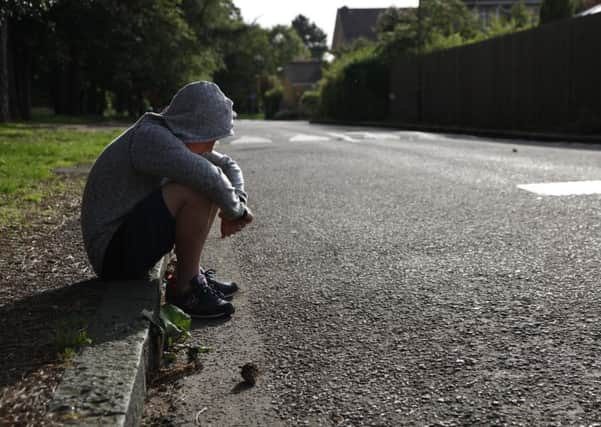Society urged to take stand against internet bullies


The power of platforms like Facebook and Twitter needs to be addressed, experts have warned, with concerns that the lack of action is “normalising” new levels of vitriol and aggression in everyday lives.
It comes after a report by MSPs last week raised fears that the social media abuse witnessed in the Brexit debate are reflected in the online bullying which Scottish pupils now endure at school.
Advertisement
Hide AdAdvertisement
Hide AdDr Chiara Bernardi, a lecturer in digital media at the University of Stirling, said the report by the equalities committee showed that online harassment and bullying happen on social media platforms “almost daily”.
“There certainly is a major issue of the growing use of deliberate and often gratuitous use of abusive, and at times even violent, language,” she added.
Bernardi said the Scottish Government should do more to educate youngsters that “shaming and bullying” vulnerable youngsters is wrong, but called for a “synchronised” approach with social media platforms.
Bernardi added: “It is no longer enough for Facebook or Twitter to remove an abusive message after it has been published. The police and the authorities need to send a clear message: we need to give online harassment and violence the same legal value of ‘off-line’ harassment, bullying and violence.”
Digital marketing expert Theo Tzanidis, who lectures at the University of the West of Scotland, said schools should equip youngsters with the skills they need to socialise in society, including social media. He also called for the law to be updated to protect people.
“It takes ages for legislation to catch up with the digital innovations of the day, they happen very fast” he added.
But he warned against moves to clamp down on social media freedoms which could undermine its value as a communications tool.
Currently in Scotland, the Communications Act of 2003 and 2010’s Criminal Justice and Licensing Act are used to crack down on internet abuse and social media bullying.
Advertisement
Hide AdAdvertisement
Hide AdDr Catherine Happer, a sociology lecturer, who specialises in media and communications at Glasgow University said today’s social media actually boosts abusive and “extreme” language.
“Those kind of posts are attention-grabbing so they get likes, shares, and re-tweets,” she said. “This facilitates an environment where that kind of comment is actually desirable and it’s promoted.”
She added: “I’m not saying we all talk like Trump, but at the same time what Trump does is create a normalisation of a particular way of speaking and it emboldens people to follow that.”
However, she added, censorship is unlikely to provide the answer.
“To tackle this you’ve got to be working with groups like Facebook and Google. I think they have to take a much more responsible role than they’re currently taking.”
A Scottish Government spokeswoman said ministers condemn all types of abusive behaviour. Depending on the circumstances of each case there are wide-ranging laws available to deal with anyone who uses social media to bully or harass another person,” she added.
“We would also encourage social media providers to take action against any inappropriate behaviour on their platforms.”